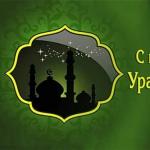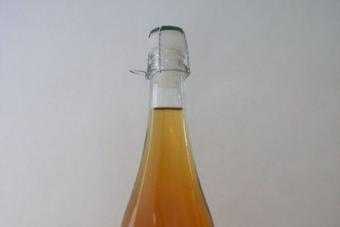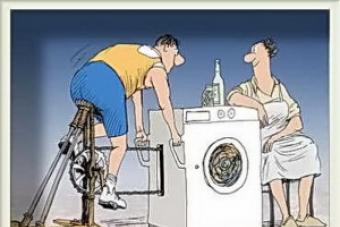For those high school students in Moscow who plan to enter a medical university, they came up with the project “Medical class in a Moscow school”. This is not just a profile class in which the main subject is biology. The project is supported by the University. THEM. Sechenov, Department of Education of Moscow, Department of Health of the capital.
For those who are preparing for the main school exam
How to get into medical class
You can become a member of the project "Medical class in a Moscow school" from the 8th grade. The decision on enrollment is made based on the results of the entrance test. The sooner a student decides to get in-depth knowledge and practice, the more likely they are to score additional points by the time they apply for admission to Sechenov University. The main testing took place in the spring, but those who have decided to devote themselves to medicine now can still apply and become students of a specialized class in the upcoming academic year.

Learning features
There are several educational programs within the project, each school chooses the program at its own discretion. Pre-profile classes - 8-9, profile - 10-11. The main subjects will be biology and chemistry.
It is these lessons that go five times a week, and schools also have elective courses: the basics of medical knowledge, a workshop on microbiology, the basics of physiology and anatomy, human functional systems, and first aid. Classes are taught by school teachers, university lecturers and medical practitioners. The practice of future doctors takes place in a special laboratory, where there are medical simulators, measuring instruments, mock-ups of organs, first aid equipment. Mannequins become the first patients; schoolchildren learn to give injections or take blood from a vein.

Every year, students of medical classes pass entrance and final tests within the walls of Sechenov University, the maximum number of points that can be obtained is 100.

Motivation and opportunities for students of specialized classes
An applicant who enters Sechenov University after a regular class provides the results of the Unified State Examination in specialized subjects. Participants in the Moscow School Medical Class project have several opportunities to provide additional points.

Every spring, the university holds a conference "Start in Medicine" for students in grades 8-11. Those wishing to take part in it in the fall submit an application and prepare projects that are sent for remote viewing. If the project is approved, the students will perform at an in-person event. If the study is returned after the correspondence stage, you will have to try your hand next year. All works are entered into a special database of the university, so it will not work twice with the same project.
Winners and prize-winners of the "Start in Medicine" receive five additional points in the entrance examinations. Points don't expire, but they don't add up either. As practice shows, the victory of at least one student in the conference motivates the rest of the guys from the profile class to get the coveted points next year.
At the end of the 11th grade, before the start of the final exams, students of medical classes must pass a pre-profile exam at the university. It consists of theoretical and practical parts. The latter includes the results of work in the laboratory. Successful passing of the exam allows you to get additional points upon admission, which are added to the five winning points of the Start in Medicine conference.

The annual Sechenov Olympiad in Chemistry and Biology invites students from specialized classes throughout the country. The competition is serious, participation is mandatory for all project participants, and only the winners receive serious preferences for admission.
Also, additional points for admission to Moscow State Medical University. Sechenov can be credited upon presentation of a gold TRP badge. At the Romanov School, a call for applications for admission to the medical class is still open - we are waiting for future doctors!
For a year now, special medical classes have been operating in the capital's schools, where children are prepared for the profession of a doctor and admission to a specialized university. In September, modern equipment was purchased for students, and now the children have real chemical laboratories, various medical devices and simulators.
What kind of project "Medical class in a Moscow school" is, why it is needed and how it helps schoolchildren - read the site in the material.
The project "Medical class in a Moscow school" is carried out on the basis of a tripartite agreement between the university, the school and the healthcare institution. The main task of such classes is to prepare children for choosing the profession of a doctor.
The educational program for schoolchildren was developed by specialists from the First Moscow State Medical University named after I.M. Sechenov. Children study such subjects as biology, chemistry, physics, mathematics, Russian language and computer science. And those students whose future lies in the use of sophisticated digital medical equipment are learning foreign languages, including Latin.
At the lessons, children are introduced to the working tools of therapists, surgeons and resuscitators and are taught to perform simple procedures. The in-depth material that is given to schoolchildren will help them get acquainted with the profession of a doctor and will be useful when entering a specialized university.

Classes are held outside school hours. The children are taught by specially trained teachers, specialists from the Medical University named after I.M. Sechenov and practicing doctors.
In total, 120 schools and about 30 city healthcare organizations are participating in the "Medical Class in a Moscow School" project.
Equipment
This academic year, more than 60 metropolitan schools have been equipped with modern equipment for medical classes - more than 90 items in total.
In institutions, digital laboratories with mannequins of people have appeared, on which schoolchildren learn to perform simple surgical operations and take blood from a vein. Schools also received medical simulators, including training defibrillators for heart rhythm therapy and a simulator for gastric lavage. In addition, medical classes have devices for measuring pressure, respiratory rate and body moisture.

Schoolchildren will take more than 20 special courses using the new equipment. We are talking about the basics of microbiology, biochemistry, anatomy and others.
"We received absolutely new digital equipment - these are digital computers, and digital laboratories, and high-precision digital microscopes. All this equipment helps to achieve high results," said Alexander Chufistov, teacher of biology and life safety at school No. 1474.
Workshops
In practical classes, students set up various experiments and conduct experiments. For example, in biology classes they determine the quality of drinking water and the resistance of microorganisms to antibiotics, in chemistry they study fungi and bacteria living inside plants, and in physics they study the wave nature of light and rainbows.
Also, schoolchildren go to the center of continuing professional education at the Medical University named after I.M. Sechenov. There, the skills gained in theory are applied in practice with the help of high-tech medical equipment.

Recently, a tour was conducted for students in the city clinical hospital No. 64. The guys saw the work of multidisciplinary medical equipment, and also applied plaster themselves, made bandages and put droppers on models. It is possible that in the future such classes will be held in other hospitals of the city.
In addition, seminars, round tables and master classes are organized for schoolchildren. Classes are held at Technology Support Centers and Technology Parks at 17 leading universities in Moscow.
According to Lyudmila Myasnikova, chairman of the parent community advisory council at the Moscow Department of Education, the demand for medical classes in the capital's schools is quite large. Parents often ask to enroll their child in these extracurricular activities. However, medical classes do not operate in all educational institutions, in this case, you can try to open such classes at your school.
Myasnikova also noted that career guidance in medical professions should be carried out for children from a young age. "Training for a future profession should start from an early age, so that children understand exactly what kind of profession it is and whether it suits them," she stressed.
Supporters of the project "Medical class in the Moscow school" believe that career guidance will help students decide on the choice of future specialization. Indeed, in healthcare there are not only doctors and physicians, but also programmers, managers, biochemists, biophysicists, cybernetics and many others.





